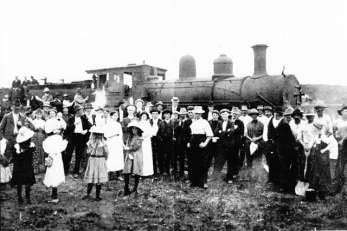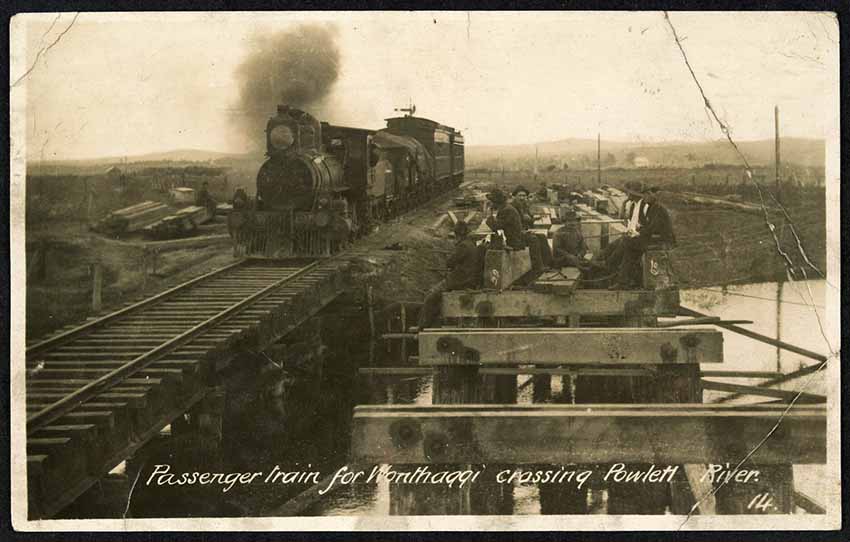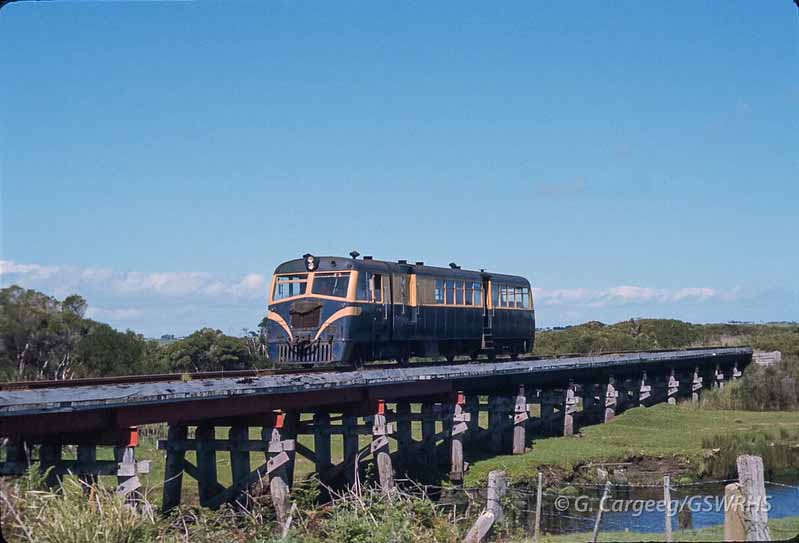 The first passenger train arrives at Wonthaggi Station, 1912
The first passenger train arrives at Wonthaggi Station, 1912 I WONDER if the people of Bass Coast ever look at the remnants of their rail line and imagine what a wonderful thing it would be if it were brought to life again. After all, the people own the alignment and it didn’t take long to make in the first place. Ten weeks only to construct the Nyora to Wonthaggi component, using horses and hand labour.
Victoria’s visionaries of the early 1900s knew that extending the rail service to all corners of the state would enable towns to prosper. From about 1950, however, the value of a rail service was forgotten and replaced by the new obsession: building roads and cars.
The restoration of rail service to Wonthaggi would provide a link, with the afore-mentioned advantages to the intermediate towns of Clyde, Tooradin, Koo Wee Rup, Nyora, Almurta and Woolamai. Ditto for a line through Loch and Korumburra to Leongatha.
The issue is timely because Casey City Council wants the Cranbourne line extended to Clyde.
Historically rural regions have always received less toward amenity than is enjoyed by residents in the suburbs. I believe reinstatement of a rail service to Bass Coast is a prerequisite for the region to develop into a mature and balanced economy. In principal, provide the appropriate infrastructure and the rest will follow in time.
For evidence, you just need to compare the sister towns within an approximately 100km radius of Melbourne. Towns such as Geelong, Ballarat, Castlemaine, Seymour and Warragul, which all have a direct rail link to the city, are all deservedly enjoying the new move to decentralization, while Bass Coast and South Gippsland are lagging.
I understand a rail service will not run for profit. It must be seen as a service in the same sense as roads, light poles and policing. The upside is that the community benefits enormously and generates increased income that is taxed.
The population of Wonthaggi fell when the State coalmine closed in 1968 and again when the train service ceased. Blows of this magnitude are hard to overcome. Despite this, the population has risen slowly but unemployment is high and young people have to leave for education and employment opportunities.
The Gippsland Regional Growth Plan (May 2014) forecasts a profound change to the demography of the region. In 1996 people aged over 65 formed 12 per cent of the population; by 2041 they are expected to make up 30 per cent, which has major implications for health, social and cultural services. and is in stark contrast to the sister towns within 100Km radius of the city.
To achieve a vibrant community, Bass Coast needs a more diverse economy that provides convenient jobs for residents to ensure sustainable communities. It means supporting the development of industry sectors with strong prospects for employment, professional services and tourism.
Despite the large number of people visiting Bass Coast and Phillip island, as an observer I do wonder if the present tourist economy benefits many in the region. The focus on the Penguin Parade is such a preoccupation and seems to involve relatively few to conduct it. A strategy designed to promote other worthy assets in the region may entice tourists to linger longer with improved employment opportunities and a lift to the collective bottom line.
These days TV programs extol the benefits and pleasures of rail journeys throughout the world.
The Wonthaggi line was taken up in 1980s for the want of vision. Sections of the trail have since been developed for walkers and bike riding but the easement could readily be returned to rail and the bike trail continued, notwithstanding that a toilet block has been built on the line in the township of Koo Wee Rup. These days, all are aware of the need to achieve the above with minimal cost to the environment.
Peter Cliff grew up on a farm in Glen Forbes and maintains strong links with the area despite living in Mt Eliza.

